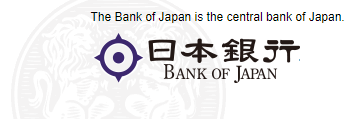TikTok's Parent ByteDance Pushes Into Payments With Help From J.P. Morgan
JP Morgan has been quietly working with TikTok parent ByteDance on payments technology that is helping the Chinese giant expand into more than two dozen markets and reach millions more users. The partnership is just one piece of ByteDance’s broader push into the fintech space.
TikTok is a sprawling marketplace: An enormous amount of money moves across the platform each day as people buy coins to send virtual gifts (like diamonds and roses) to their favorite creators and others they meet through the app, who can then convert those items into cash. Users around the world spent $3.4 billion on TikTok in 2022, up from $2 billion the previous year, and spending in the U.S. alone more than tripled—to $670 million—from the year before, according to data analytics firm Sensor Tower.
ByteDance enlisted J.P. Morgan to streamline these transactions, improve the way payments are sent and received and set up one centralized bank account for ByteDance’s more than a dozen products, including TikTok and its Chinese counterpart Douyin. Notably, ByteDance has also scooped up several J.P. Morgan executives for the global payments team leading its larger fintech expansion.
Neither company would comment on the partnership itself or when it began. But according to a case study on J.P. Morgan’s website that describes their work together, the bank has built “a real-time payments infrastructure” for ByteDance that now allows its users “to be paid instantaneously and directly into their bank accounts at any day or time,” an improvement on a previous, much slower e-wallets system. This J.P. Morgan technology, enabled in the U.S. and Europe, now “covers approximately one-fifth of TikTok’s 1 billion active users worldwide.” The payment system also “allows real-time exchange of data between ByteDance and J.P. Morgan” so that ByteDance can “see and monitor payments,” the memo says. Neither company would say who has access to that sensitive data and what type of monitoring is occurring.
J.P. Morgan did not respond to a request for comment. ByteDance spokesperson Jennifer Banks said only that its global payments team “is an internal function that supports our businesses' needs” and that “this department works to ensure third parties, including partners and vendors, are compensated for their work.” In response to a detailed list of questions, TikTok directed Forbes to a blog post on how it protects Americans’ data.
One of TikTok’s hiring priorities appears to be staffing its Global Payments team, which “is building a platform to provide cross-border payment solutions for all ByteDance's products and services, such as TikTok,” according to a recent job posting on LinkedIn. Heading up that team is longtime J.P. Morgan executive Kingsley Lam, who after more than a decade at the bank left in 2020 to oversee global payments, for the Americas and Europe, at TikTok and ByteDance, according to LinkedIn (he did not respond to an interview request). Several other former J.P. Morgan employees have decamped for ByteDance’s global payments team, including executives in the United Kingdom, Shanghai and Beijing, according to LinkedIn. Neither company would comment on the hiring strategy.
Xiaomeng Lu, a director at Eurasia Group, a firm advising clients on geopolitical risks, sees the departures as evidence that the unicorn is “cash rich” and can afford to recruit seasoned financial experts and pay them a premium. And in spite of the heightened political pressure in the U.S., she said the team-up offers clear benefits for both sides.
For J.P. Morgan, which only recently was granted expanded market access in China, the ByteDance collab could give them a foothold in China’s e-payment market, according to Lu.
For ByteDance, meanwhile, syncing up with a revered American financial institution and experienced player in U.S. politics is smart positioning and an invaluable endorsement.
“J.P. Morgan is such a well-established, well-networked, very influential stakeholder in the U.S., and cooperating with a major player in the U.S. makes the company look more trustworthy,” Lu said. “They must have been considering that: They want a very credible partner in this space that will help them burnish their own reputation. … They are trying so hard to find every channel to push their message in Washington, and J.P. Morgan is so good at that.”
“How much that registers with the policy community in D.C. I think is somewhat questionable,” she added, “but at least in the business community, it makes [ByteDance] look good.”
“Cooperating with a major player in the U.S. makes the company look more trustworthy. They must have been considering that.”
Xiaomeng Lu, director in Eurasia Group's geo-technology practice
J.P. Morgan’s services have helped ByteDance “expand into over 30 markets,” “cover millions more users” and grow its business “by 10-fold,” the memo says. J.P. Morgan’s managing director of payments, Sridhar Kanthadai, touted the project in the memo, alongside an unnamed ByteDance payments executive.
Gerstell, the former NSA legal chief, said that while it could be beneficial for the U.S. or an American company to have some insight into Chinese payment mechanisms and how they operate, “the threat that information of American users or Western users will be made available to Chinese authorities for surveillance purposes” is also “a very big concern.” Beyond the data question, having a significant financial platform (possibly with another currency system, like the digital yuan) that is not easily accessible by American law enforcement intelligence agencies could be “a potentially huge problem.”
Some of these issues may be addressed in the forthcoming national security deal led by CFIUS. Despite rising concerns, a blanket American ban on the app is unlikely, Eurasia Group’s Lu said, citing its popularity as a search engine and the large volume of American businesses that operate on the platform. A more likely outcome of the deal is increased restrictions or a spin-off to mitigate the Chinese ownership risk, she said. Lu thinks the agreement will embolden more U.S. businesses to work with ByteDance—rather than scare them away.
"If CFIUS sets another series of benchmarks and ByteDance can meet them, that's a green light, that's a big brain signal for banks,” she said. “There may be more U.S. companies coming to ByteDance and asking for deals like this. … And from J.P. Morgan's perspective, that may be a safer deal in the long run.”






















































First, please LoginComment After ~